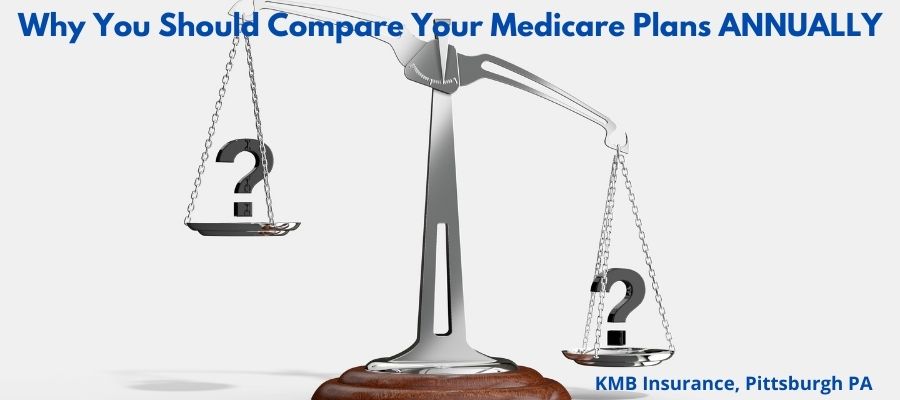
The Medicare open enrollment period runs from October 15 to December 7 annually and gives beneficiaries a chance to compare and switch Medicare Part D drug plans or join a Medicare Advantage plan. Medicare Advantage plan beneficiaries can compare and switch coverage or switch to coverage under traditional Medicare.
But now data from the Kaiser Family Foundation shows that more than half of all beneficiaries don’t compare or review their coverage during this period.
It’s not for lack of choice, as next year the average recipient will have 57 Medicare Part D or Medicare Advantage plans to select from. Coverage has not always included so many choices, as the original program as developed in the mid-1960s offered identical coverage to all eligible workers who paid into the system.
The privatization of Medicare led to more variety for beneficiaries, which in turn led to more opportunities to make choices.
As the numbers show, however, most people aren’t doing that.
According to Medicare’s own data, 57 percent of enrollees did not review their coverage options annually. More than that, 46 percent of enrollees have either never or rarely visited the details of their plans.
It’s not hard to imagine why, as mining the data of Medicare plans can be a daunting and time-consuming task. Imagining senior citizens willing to spend a good portion of time ransacking through information and finding differences is tough, even under the best of circumstances.
The numbers change with age, too. Over two-thirds of Medicare consumers over the age of 85 don’t review their coverage annually and about 33 percent of people in this age group never do. Those in poor health and those in lower education brackets are also less likely to comparison shop.
And here’s the thing: it’s not for lack of information.
Each year, Medicare sends out its annual Notice of Change documentation and a handbook called “Medicare and You” is mailed out to detail plan options. Both of these pieces of information contain plenty of straight data about how plans have changed, plus email alerts are sent out to recipients to notify them as to critical dates on the calendar and other things they’ll need to know throughout the year.
Despite this wealth of information, the Kaiser Family Foundation revealed that some 44 percent of recipients report never visiting the Medicare website. About 18 percent of recipients do not have Internet access to begin with, while only 28 percent of recipients have ever called the Medicare phone number. That number, by the way, is 800-MEDICARE.
So why is this happening?
According to the numbers, 30 percent of recipients found the information either “somewhat difficult” or “very difficult” to understand. Believe it or not, those numbers were higher among younger people on Medicare – like those contending with disabilities or in generally poor health.
The sheer mass of information related to Medicare is daunting.
The importance of knowing what’s going on specific plans is substantial. Medicare Advantage and Medicare Part D plans vary extraordinarily across the board in terms of cost and overall coverage. And these plans can change from one year to the next, with many seniors missing out on sizable cash savings when they don’t inform themselves about switching plans.
Interruptions for beneficiaries can also come up with Medicare Advantage plans. Cases occur in which doctors are no longer in a plan’s network, for example. Drug plans can alter coverage, while pharmacy networks change and costs can increase when it comes to drugs covered under a given plan.
According to the Kaiser Family Foundation, only a small number of people actually switch their plans on a voluntary basis. Most seem happy with what they have, but the research also indicates that ignorance may not in fact be bliss. Some are simply not switching plans because they cannot figure out how.
The privatization model of Medicare requires educated consumers to make educated choices, but that’s just not happening. There are a number of reasons behind this, but there is help out there. Consumers who find themselves lost in the data can call the free hotline of the Medicare Rights Center at 800-333-4114 or check out the Medicare Plan Finder tool on the official Medicare website.
If you are located in Pennsylvania, Maryland or WV, please reach out to us at 724-695-3031 for help in deciding which plan is best for your specific needs. You can learn more about us here at our about us page.



